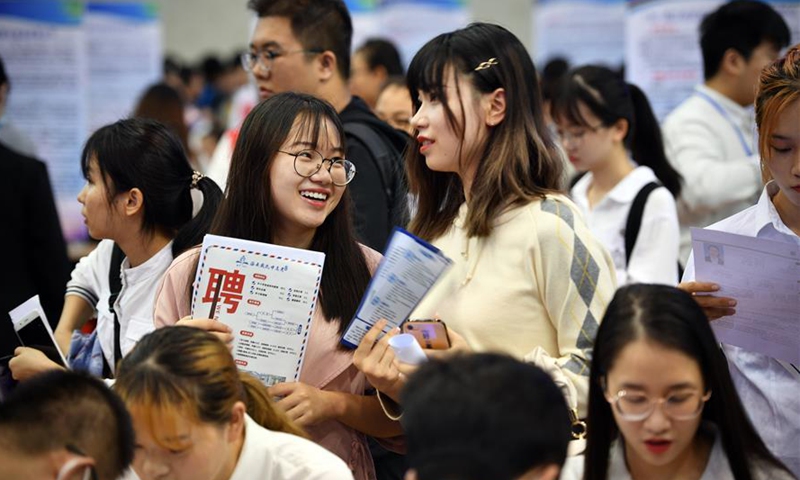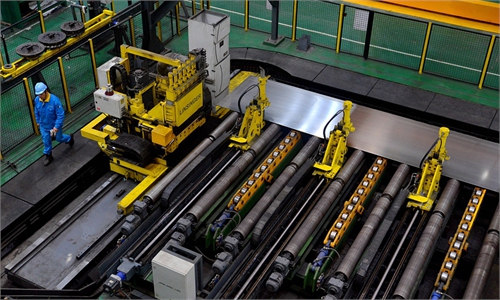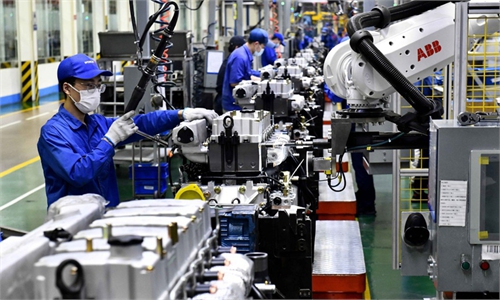
Job seekers attend a job fair in Haikou, south China's Hainan Province. A job fair, which provided nearly 8,000 job vacancies, attracted thousands of graduates. (Xinhua/Guo Cheng)
A total of 12.07 million new jobs were created in urban areas across China from January to November this year, surpassing the annual employment target of 11.00 million new jobs, data released by the National Bureau of Statistics (NBS) showed on Wednesday.
In November, China's surveyed urban unemployment rate stood at 5.0 percent, 0.2 percentage points lower than the same period last year. Unemployment among those aged between 16 and 24 reached 14.3 percent, a slight increase of 0.1 percentage points compared with the previous month.
Unemployment among young people fell from 16.2 percent in July to 14.3 percent in November, validating a series of policies aimed at stabilizing employment opportunities for young job-seekers, analysts said.
The surveyed unemployment among those aged between 25 and 59, the bulk of the labor market, stood at 4.3 percent, up 0.1 percentage points from October.
According to a five-year plan on boosting employment released by the State Council, China plans to add more than 55 million new urban jobs by 2025, while the country's labor force, starting from the next year is likely to witness a wave of retirements, with a decline of about 10 million employees every year, which may have an impact on the Chinese economy, Su Jian, director of the National Center for Economic Research at Peking University said late Saturday at the Global Times Annual Forum.
Fu Linghui, a spokesperson from the NBS said during a press conference on Wednesday that China still possessed a vibrant labor force. According to data collected during the seventh national census in 2020, people aged between 16 and 59 stood at 880 million, reflecting the country's significant working population.
The country is also adding 10 million new children each year. With the implementation of the three-child policy, the age structure of the national population is set to gradually improve, promoting long-term balanced development, Fu noted.
Global Times



